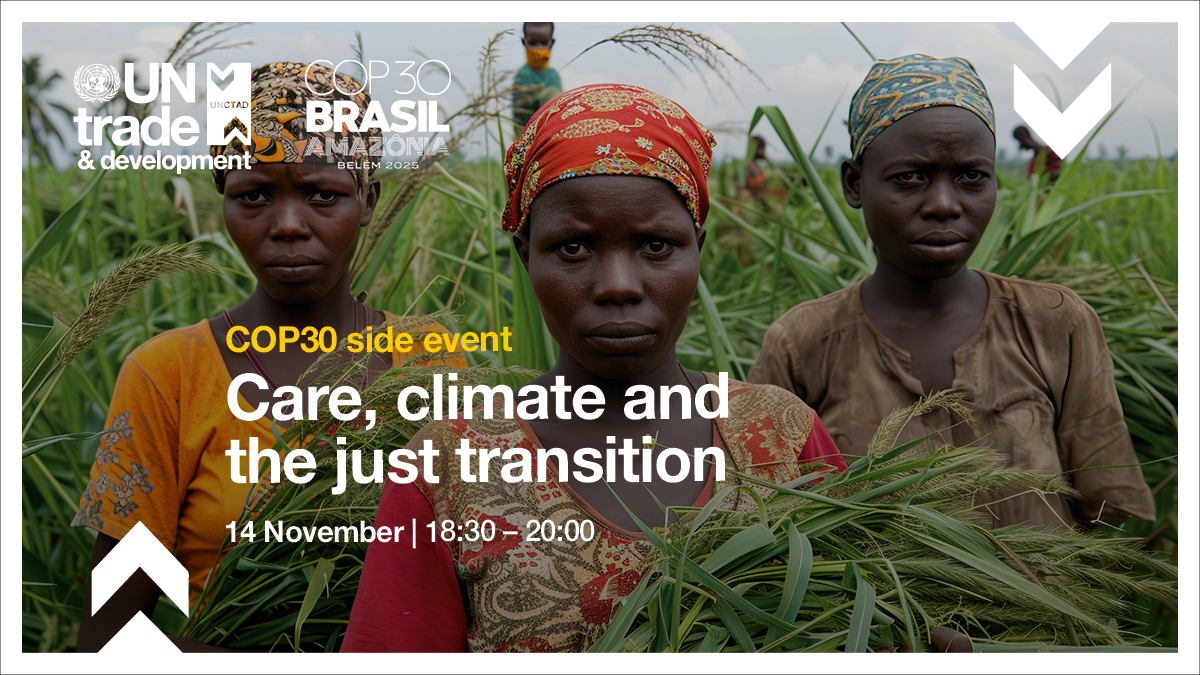
This session will explore the links between climate change and care to inform work towards a just transition. It will shed light on the gendered impacts of climate change and help understand the structural challenges and opportunities that arise when care is central to how we address the climate crisis.
Evidence suggests that climate change increases and intensifies the burden of care work, which exacerbates existing gender, economic and geopolitical inequalities and vulnerabilities. At the same time, many caring responsibilities, such as the broad range of social infrastructure activities and caring for food, water and biodiversity are critical to collective well-being in the face of the climate crisis.
Given the interdependence of care and climate change, it is increasingly evident that they need to be addressed together to achieve a just transition. Though there are some important exceptions, many just transition strategies and policies tend to focus on formal industrial jobs in the energy, manufacturing and transport sectors, with limited attention to care work, informal workers and social infrastructure despite their centrality to satisfying human needs while also reproducing society and protecting the biophysical environment. Some policies may also exacerbate inequalities by placing a disproportionate responsibility on women and marginalised groups to implement mitigation, adaptation and environmental preservation.
Without considering the care dimensions of climate action, policies may recreate and deepen existing inequalities. With progress developing on a just transition outcome at COP30, the opportunity must be grasped to re-orient ecological transition policies away from narrow definitions and towards systemic transformations that can address the care needs of both people and the planet.
Objectives
- Examine the intersections between care systems and climate policies, identifying how climate change reshapes care needs and labor patterns.
- Highlight how centering care work(both paid and unpaid) can strengthen social and environmental resilience and advance gender equality.
- Propose policy directions to integrate care into just transition frameworks, broadening their scope beyond industrial sectors and formal employment.
- Foster dialogue among UN agencies, governments, and civil society actors on how to operationalize care-centered approaches within national climate strategies
- Raise awareness and launch new initiatives addressing the climate and care nexus
Expected results
- Enhanced understanding among policymakers and negotiators of the care-climate nexus and its implications for a just transition.
- Policy recommendations for integrating care dimensions into national and international climate frameworks, including just transition, adaptation, mitigation, and social protection strategies.
- Visibility and momentum for positioning care work as a pillar of equitable and sustainable climate governance, contributing directly to the implementation of SDG 5 and SDG 13


